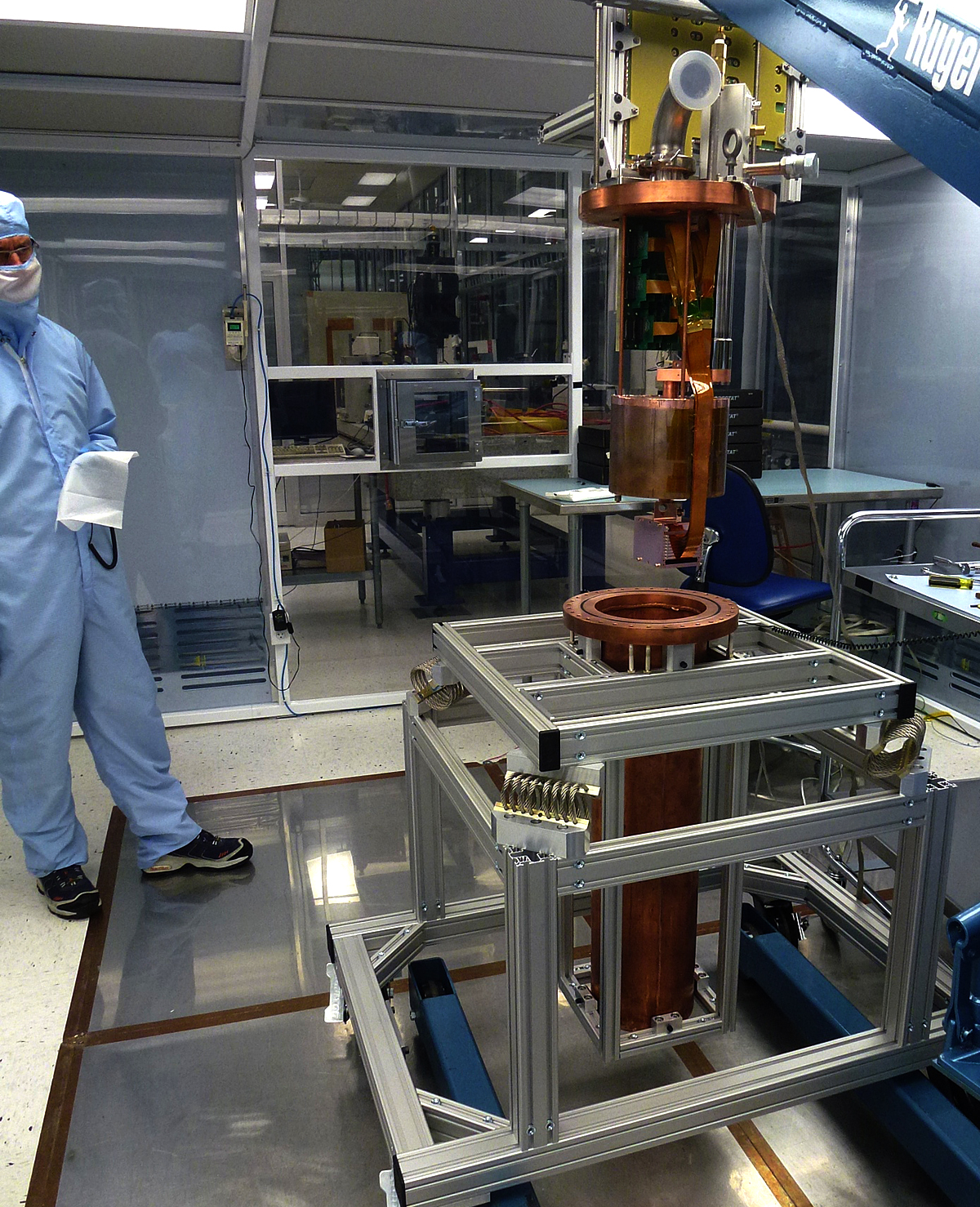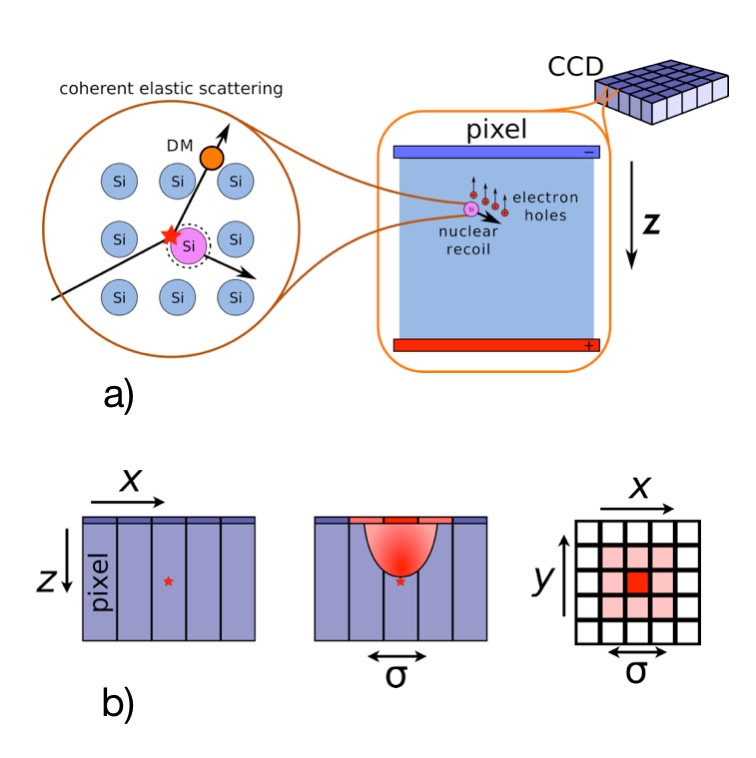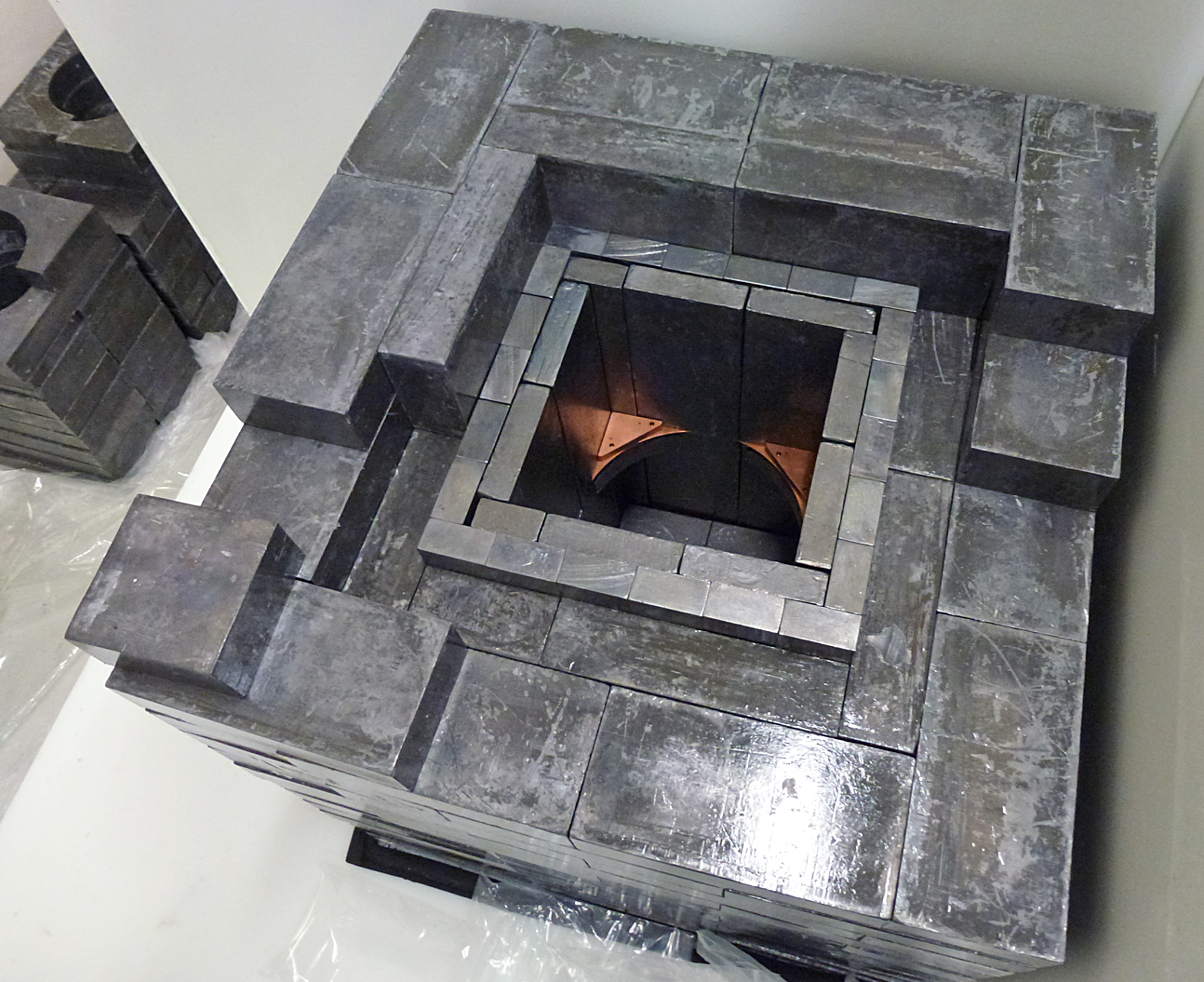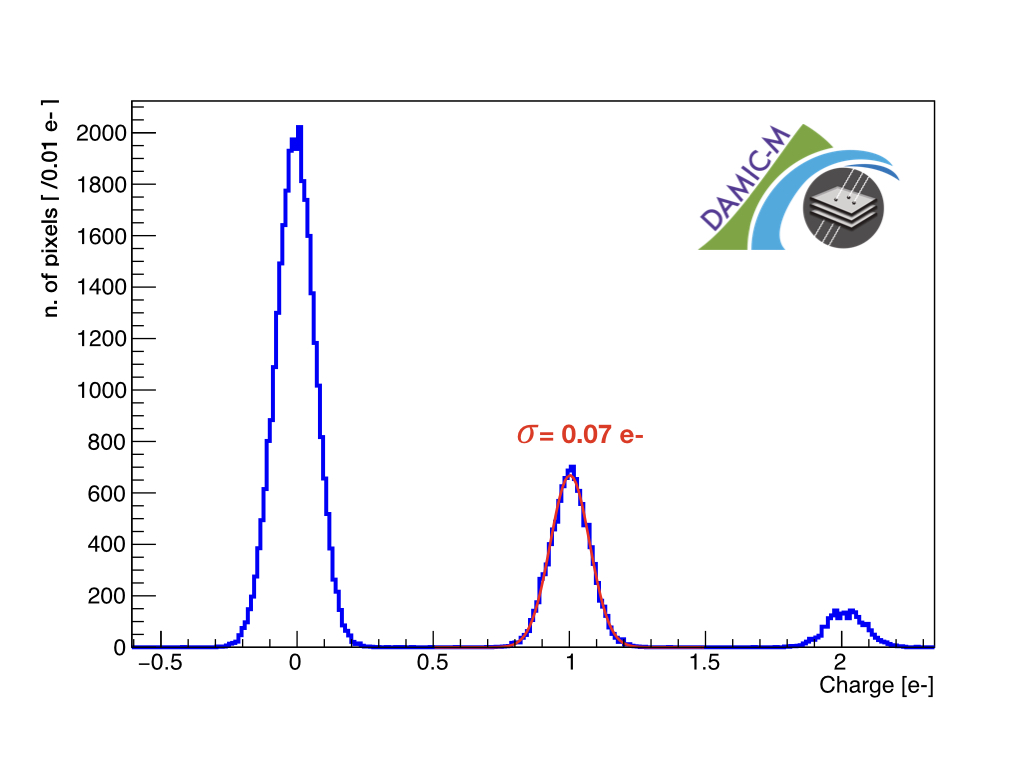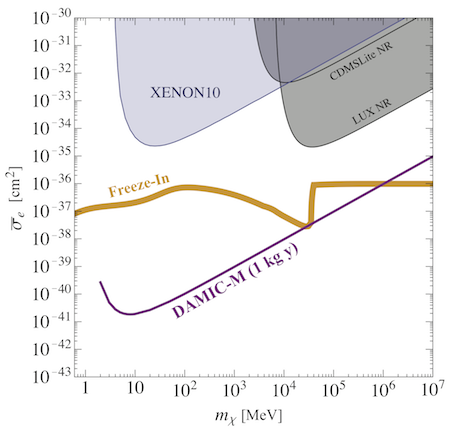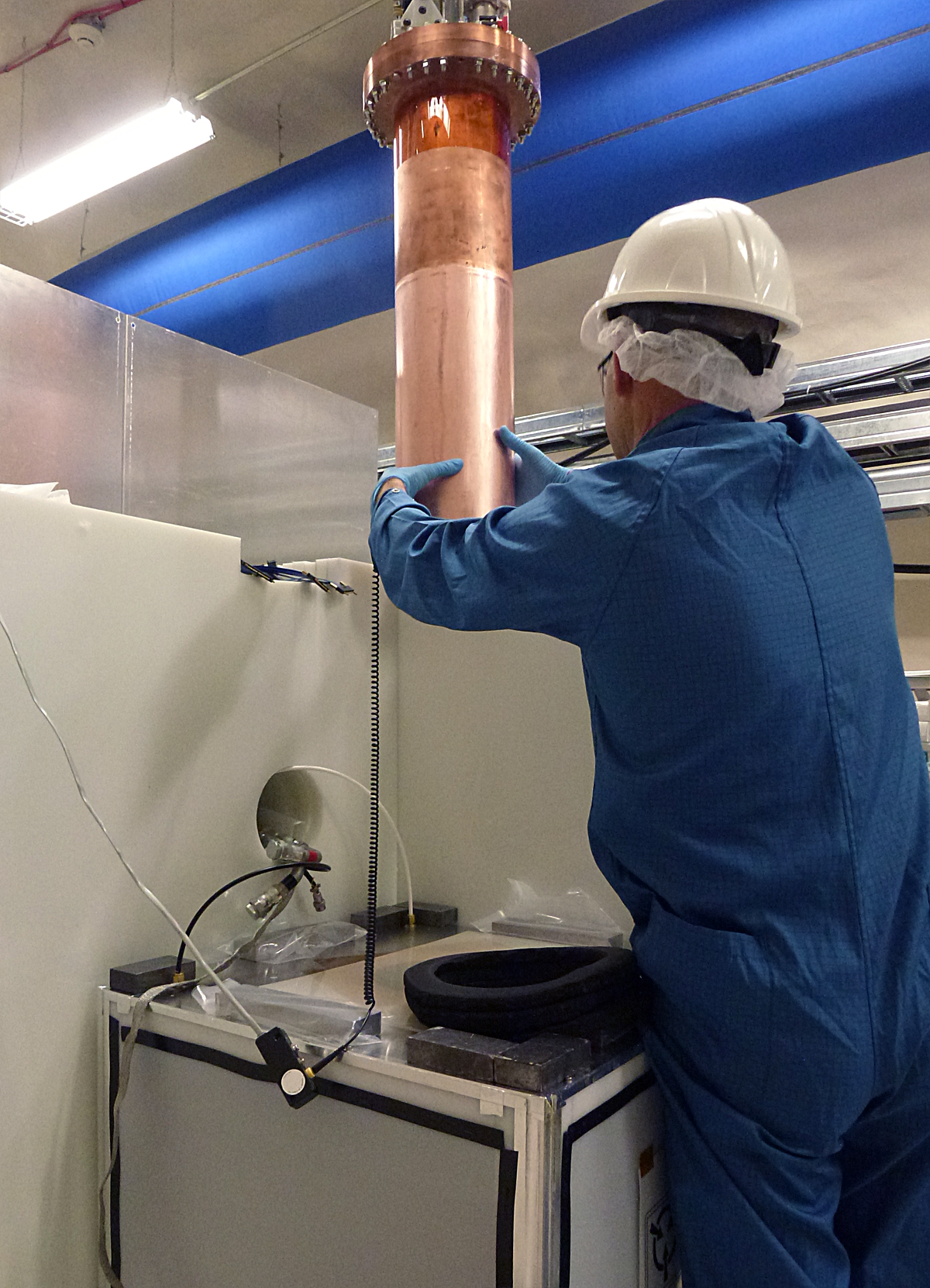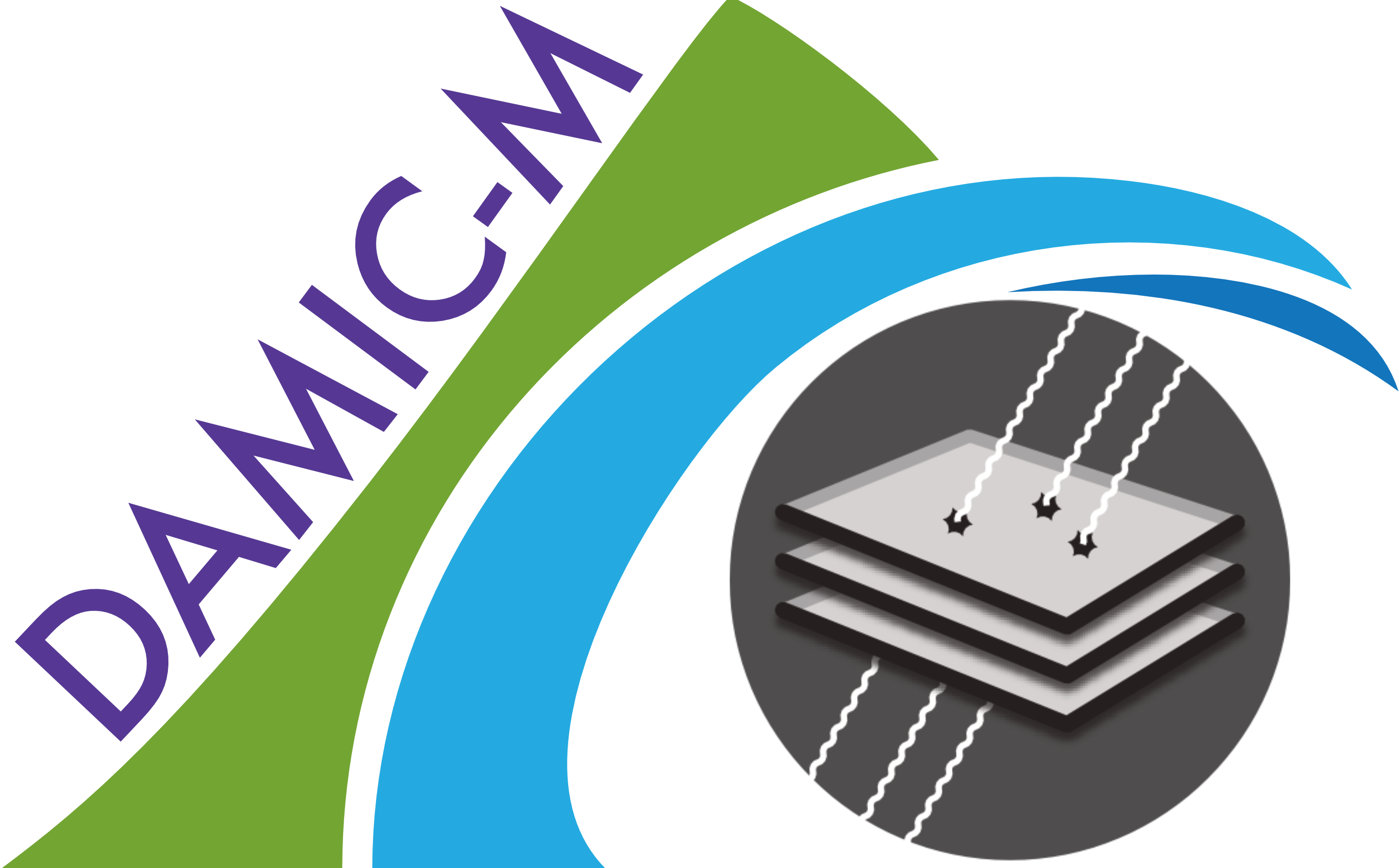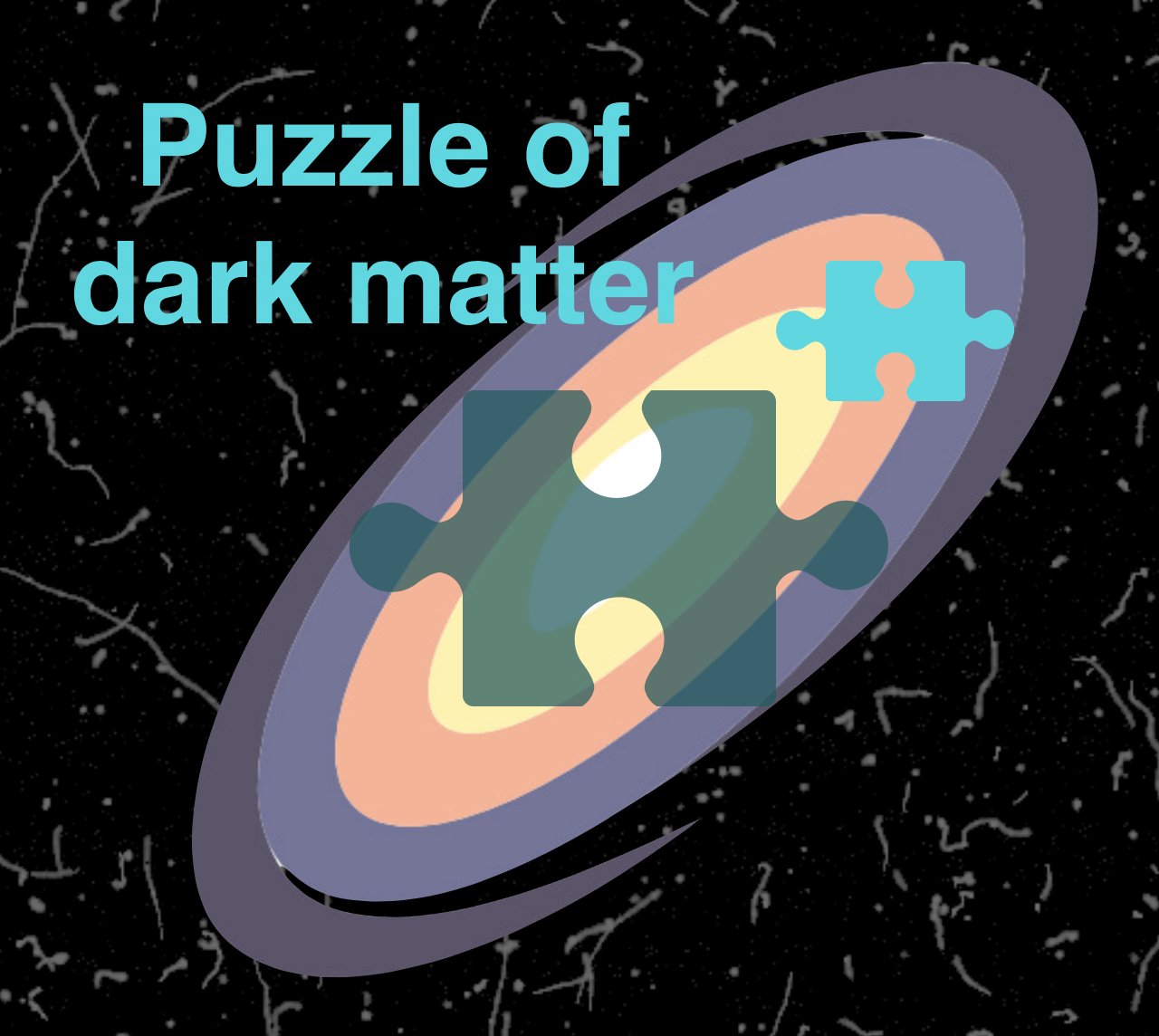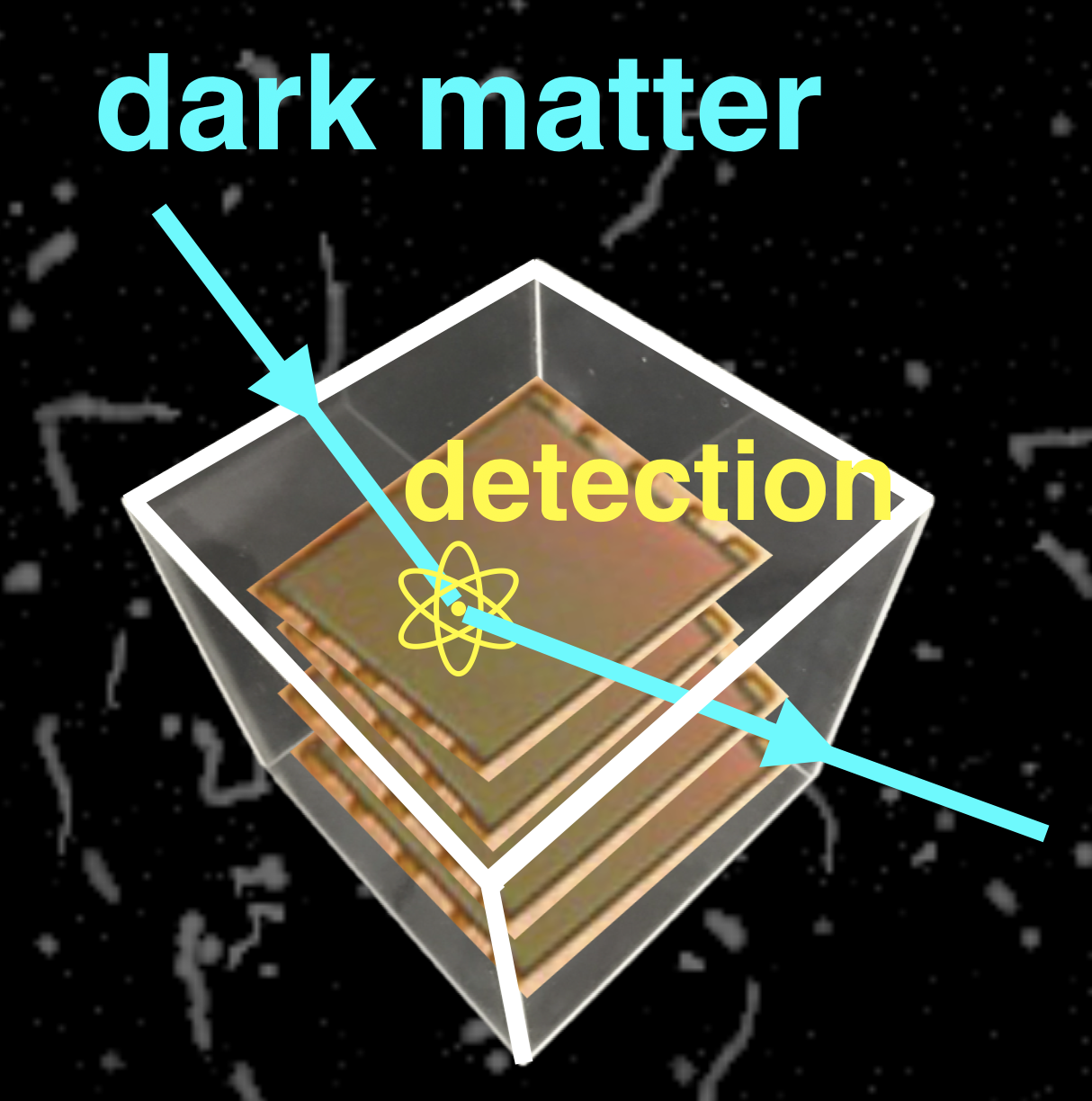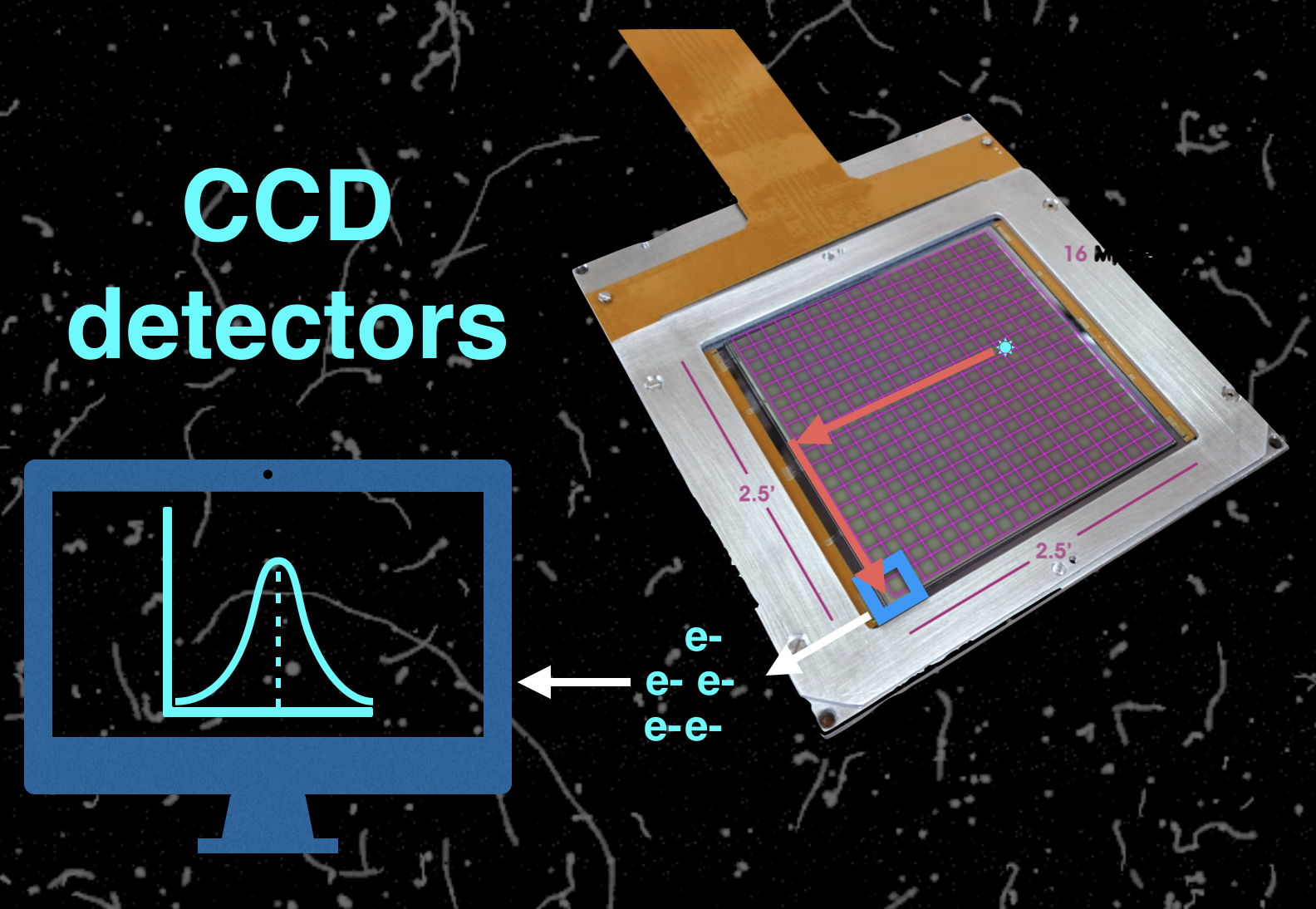The DAMIC experiment at UZH
Read below about the puzzle of dark matter and how to detect it. The DAMIC experiment uses CCD detectors as particle detectors to search for the blip of electric charged caused by dark matter interactions.
DAMIC-M experiment
DAMIC (Dark Matter in CCDs) is an experiment using CCD detectors to search for dark matter. Click on the figures above for more information.
DAMIC-M (DAMIC in Modane) is the newest phase of the experiment, which will be operated under 1700 meters of rock at Le Laboratoire Souterrain de Modane.
